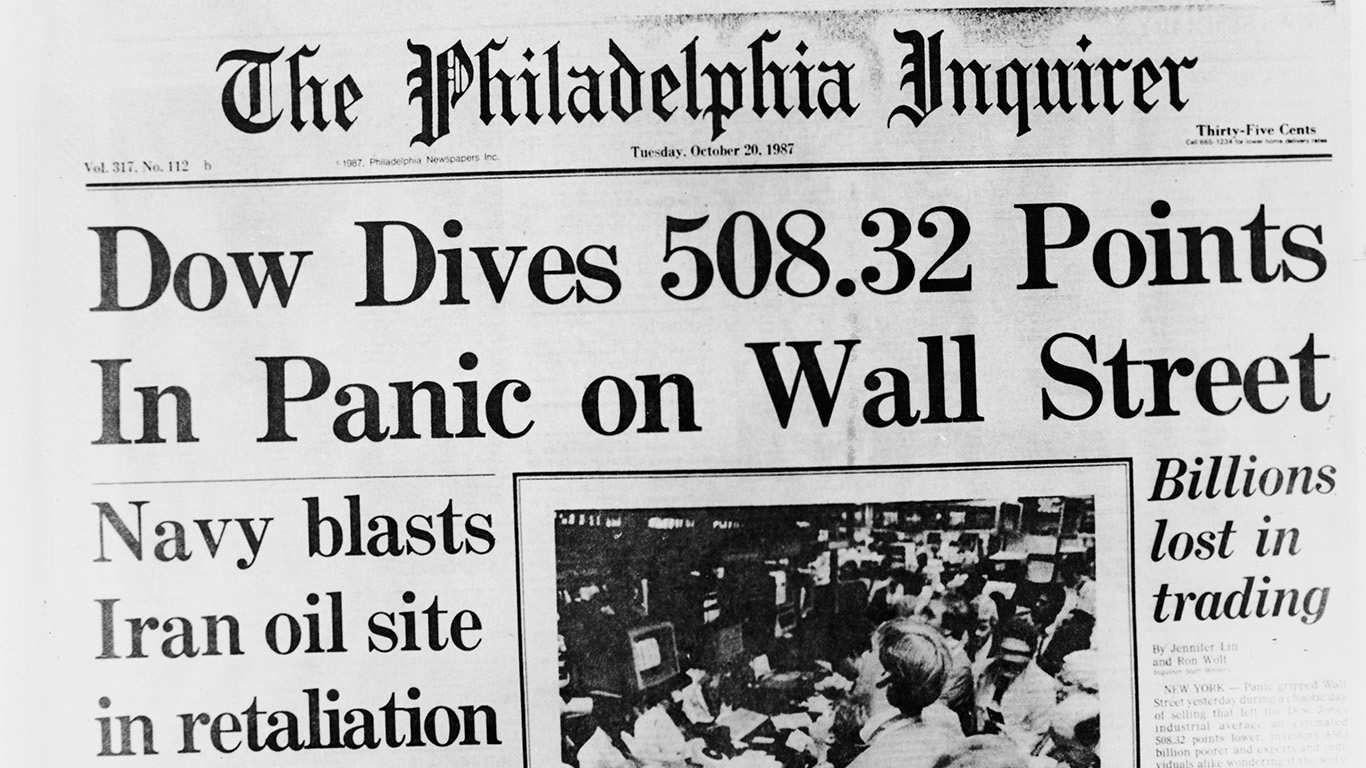

The “Buy the Dip” financial news teleprompter readers and the 30-year-old portfolio managers who have never seen a market crash are pounding the table that stocks are going to the moon. Market veterans and “Hey Boomer” professionals have seen this show before. In 1987, the DJIA plunged a stunning 22% in one day. Today, an equivalent drop in the venerable index would be almost 8560 points.
From 1929 to 1932, the stock market plummeted a stunning 83%, and many lost everything. That debacle caused the Great Depression, which ended only when we entered World War 2 in 1941.
From 2007 to 2009, during the height of the mortgage and real estate collapse, which brought us dangerously close to another depression, the market dropped a massive 57%. When stocks finally bottomed at an ominous intraday low of 666 on the S&P 500 on March 9th, 2009, we placed the floor for the longest bull market in history, which ended in January 2022.
So, where do we stand now? We are possibly on the precipice of a much more significant decline than we have seen in years, with all major indices trading at all-time highs. With the potential for at least one more rate hike unlikely unless inflation heats up, the “higher for longer” mantra is a likely scenario for investors. If we see an interest rate cut this year, it may not come until after the November elections, if at all.
One positive is that consumers and businesses are generally in reasonably good financial shape. Stock portfolios and home prices have increased dramatically over the last few years, and the financial system isn’t teetering on the abyss as it was globally in 2008 when Bear Stearns and Lehman Brothers collapsed. To avoid a similar fate, Merrill Lynch had to be bought by Bank of America.
One thing is for sure: If inflation moves higher, the wars in the Middle East and Ukraine expand, and our crushing national debt, approaching $35 trillion, continues to spiral out of control, the path of least resistance will be down. Investors should consider some crucial items now, as they may have to prepare for the worst.
Start building a cash stash now

Matching current losses against gains, even if they are short-term, makes sense to help build up a cash supply. The proverbial dry powder may come in handy down the road.
Close out any margin positions immediately

When times are good, using margin loans to buy more stock is a bad plan for individual investors, especially when those margin positions are high-volatility momentum stocks. If the market collapses, a highly leveraged investment account could be destroyed.
Gold and Silver make sense now

As we have recommended for years at 24/7 Wall St., a gold position helps mitigate the downside. As we noted last year, the precious metal could return to all-time highs, which it has, but it could explode higher in a market crash.
Make sure investments reinvest in more shares

Ensure that all the dividend-paying stock and mutual funds in personal and retirement accounts are coded to reinvest all capital gains and dividends if possible. This allows you to buy more shares when prices are hit hard. The second quarter is just beginning, and many stocks and funds pay dividends on a calendar quarterly basis.
Real Estate can help soften the blow

Consider real estate if you have the good fortune to come into a windfall, like an inheritance or something similar. While mortgage rates have increased over the last two years, the 30-year fixed rate has risen as high as 7.25%. However, it has fallen back to 6.91% for a 30-year FHA mortgage, and while still reasonable on a historical basis, it’s the highest since 2008. Owning cash-generating passive income rental property makes sense now.
Pick stocks carefully now

If you need stock ideas, look at highly conservative ideas, which are not affected as badly by even the worst-case scenarios. In other words, look at companies that provide goods and services that are needed all the time, such as utilities, telecommunications companies, consumer staples, and real estate investment trusts.
U.S. Treasury bonds look great now

Sell high-volatility stocks and look at the short end of the Treasury market. The 2-year note, like all Treasury debt, is guaranteed by the full faith and credit of the United States and yields a stunning 4.75%. One-year Certificates of Deposit yield as high as 5.25%, and money market savings accounts, FDIC insured up to $250,000, yield anywhere from 4% to 5% with daily liquidity.
Stock rallies don’t last forever

The recent massive bull market run has been a blessing and now may become a curse. Numerous drops and corrections have occurred over the years; the fourth quarter of 2018 was a good example when the S&P 500 declined 18% on an intraday trading basis over three months.
Last but not least….

2022 was the worst year for the stock market since 2008, and while 2023 was gigantic, led by the Magnificent 7, and stocks are up smartly this year, trouble is likely brewing, especially in the tech-heavy Nasdaq. While not a subject investors like to consider, a steep drop is becoming increasingly possible.
Remember that even the most challenging human history and investing events have eventually been overcome. Whether healthcare-related, war-related, foreign geopolitical or domestic troubles, or other issues that have combined to cause market sell-offs, they eventually end. So it makes sense to take advantage of the recent massive increases in stock prices and shift to higher and safer ground.
Essential Tips for Investing: Sponsored
A financial advisor can help you understand the advantages and disadvantages of investment properties. Finding a qualified financial advisor doesn’t have to be hard. SmartAsset’s free tool matches you with up to three financial advisors who serve your area, and you can interview your advisor matches at no cost to decide which one is right for you. If you’re ready to find an advisor who can help you achieve your financial goals, get started now.
Investing in real estate can diversify your portfolio. But expanding your horizons may add additional costs. If you’re an investor looking to minimize expenses, consider checking out online brokerages. They often offer low investment fees, helping you maximize your profit.
Thank you for reading! Have some feedback for us?
Contact the 24/7 Wall St. editorial team.



